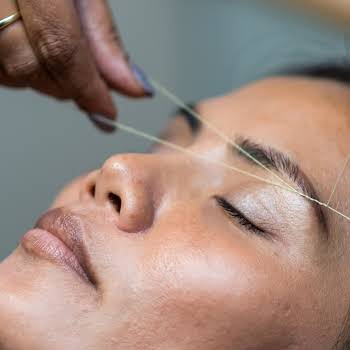
By Jennifer McShane
24th Jan 2019
24th Jan 2019
Being a woman, simply uttering the word “vagina” or “vulva” can prompt a degree of embarrassment, depending on the context. We have them but we frequently feel shamed into silence when it comes to talking about them. Just as advertisements exist to prompt you to remove body hair without showing any body hair at all, so too, do ads for tampons without showing any period blood. A handful of companies are taking a stand against this, we’ve seen only one or two decide to defy societal norms; the recent Gillette ad is a prime example.
And now, Durex gets a massive thumbs up from women everywhere for trying to tackle another hugely prominent issue, usually only whispered about: painful sex. Granted their ad is selling a product (lubricant) but it gets points for starting a crucial conversation.
Related: Here’s what you should know about Pelvic Floor Dysfunction
The advert features a number of women in their 20s and explores how vaginal dryness at certain times of the menstrual cycle can affect sexual pleasure. Yes, sex can hurt for a variety of reasons: it can be your cycle, vaginal dryness, Pelvic Floor Dysfunction, vaginismus or vulvodynia (the latter two are chronic conditions) but equally, it’s not something that can always be solved by grabbing a bottle of lube.
In that sense, the ad simplifies a very complex topic, but you see the point. The very idea of lubricant can often be used as yet another stick with which to beat us – three articles I read this week alone talk of women feeling “embarrassed” to have to need it in the first place. Durex wants to dispell that. Sometimes, occasion calls for it, simple as. Along with much foreplay, you by all accounts, generally need plenty of both.
A third of women report discomfort or pain during intercourse – that’s quite a staggering statistic. But how many of us talk about this with our friends? Or go and get it checked out by a doctor if it starts to impact our sex life? I asked a number of my female friends if they had ever dealt with this and A, asked their partner to stop or B, gone to their GP if it became prolonged – they all said yes, at various different points in their lives they experienced pain – but no to both my additional questions.
Related: Despite the breach of trust, please don’t stop having smears
“I’d be mortified,” said my first friend. “I just grinned and beared it [the pain] and it was fine, I’m sure if I just relaxed about it more, it’d be less of an issue.”
Another friend complained of recurring discomfort and I asked as a starting point, if she had self-examined – as in, grabbed a small mirror to make sure, at least externally, everything looked okay.
She nearly passed out. “I’d NEVER look at the area she said, shrieking and claiming it would make her anxiety even worse.
“So, how do you know what is normal for you?” I pressed. She swiftly changed the subject.
In my exploration of this topic, two things became apparent. We’re still, by in large, very uncomfortable talking about our vaginas and worse, we really are embarrassed by them – to the point where some of us won’t even look at them.
Related: ‘Do not ignore this’: Vicky Phelan urges women to listen to their bodies
Smear tests are still an issue. Even though we know they save thousands of lives – they are essential.
Yet they are embarrassing.
They are uncomfortable.
These are the messages women continue to receive, whether openly, subliminally, through word of mouth, by default or negative association.
Concerning
A UK study this week, according to the data, cervical screening rates among all ages are at their lowest for two decades. The rates for young women are particularly concerning: only 65% of under-35s took up their latest screening invitation.
Singer Isabel Munoz-Newsome, the frontwoman with British band Pumarosa and she had her cervix removed in 2017 after contracting cervical cancer. She had never gone for a smear test because she said, she’d been too embarrassed.
“I was so angry at myself that I just hadn’t gone because I was embarrassed. Isn’t that ridiculous? I was embarrassed by my own body. Stupid.”
We are equally bad at making sure they feel okay. ‘Grinning and bearing it’ were words I heard repeated – the partner (who in this case were all males), getting priority over our own comfort.
Sex shouldn’t hurt. Smear tests must be taken and sometimes, a bottle of lubricant might be just what the doctor ordered. But, if it’s not, for God’s sake don’t leave it be. Go to the GP, demand another option, another opinion.
Life is too short in every sense, to use the terms ‘bearing it’ to describe your sexual life – or your health.























